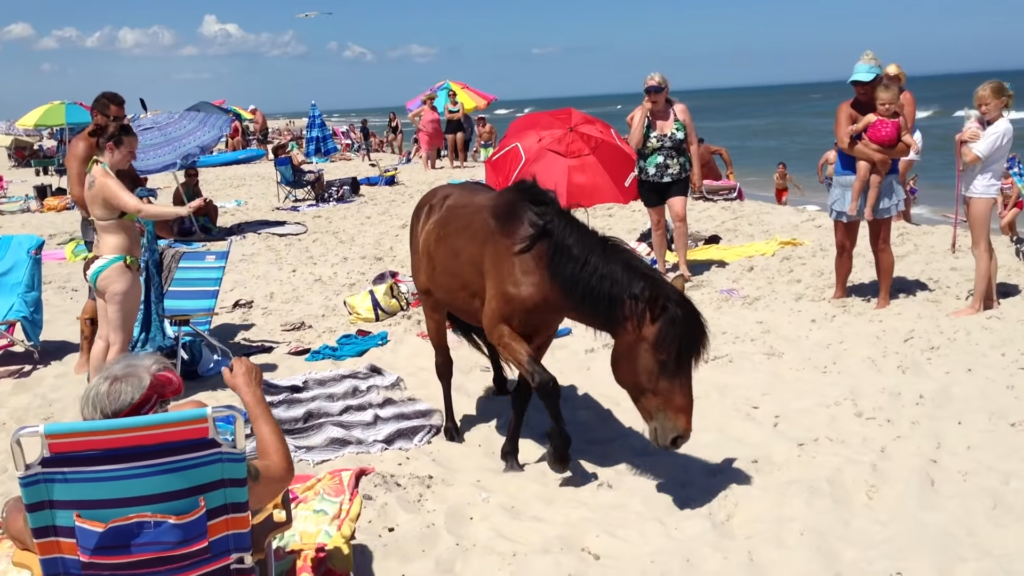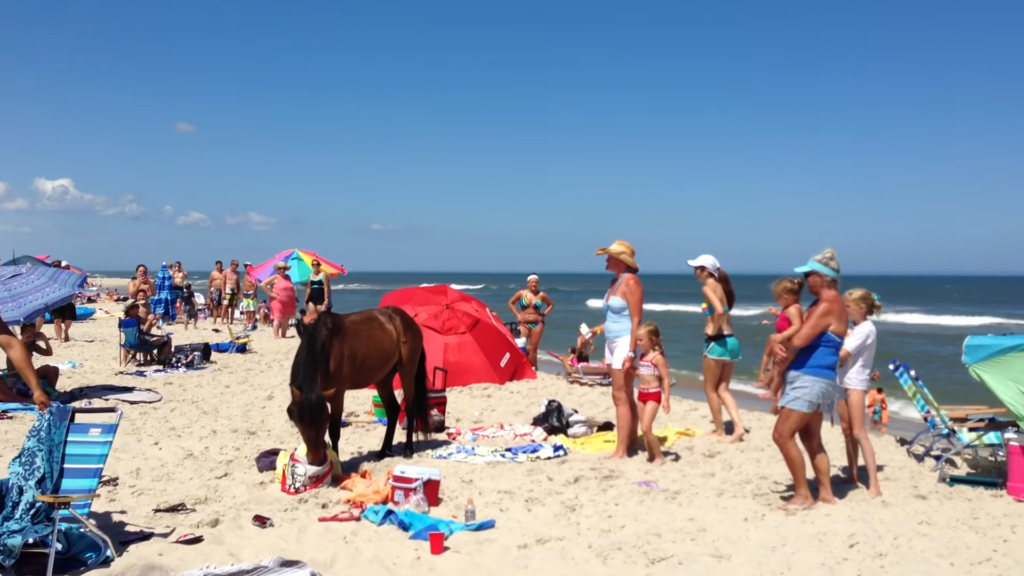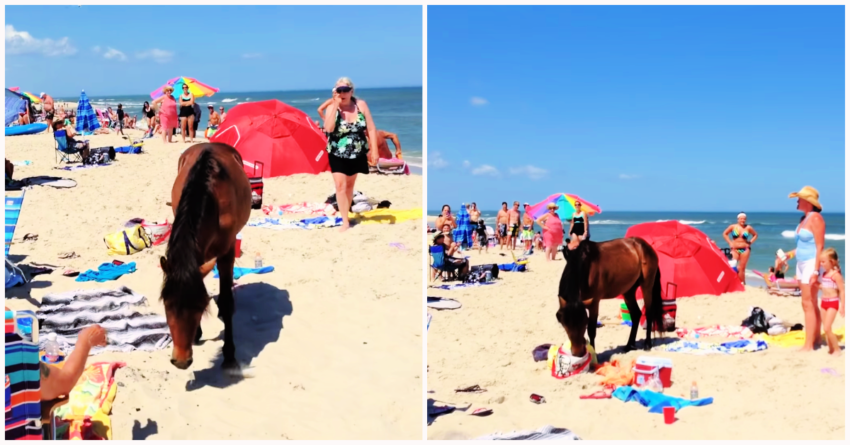Beachgoers at Assateague Island in Virginia experienced an unexpected encounter when a herd of wild horses decided to join them on the sandy shores. As the tourists soaked up the sun and enjoyed the ocean views, the wild ponies made their way through the crowd, rummaging through belongings in search of snacks. This close interaction with the island’s famous equine residents provided a unique twist to the usual beach day, illustrating the blend of natural wildlife and tourist activities that Assateague is known for.

Assateague Island, a 37-mile-long barrier island located off the eastern coast of the Delmarva Peninsula between Virginia and Maryland, is home to over 300 wild horses. These horses have a storied history on the island, with legends suggesting they are descendants of survivors from a Spanish galleon that shipwrecked hundreds of years ago. Another theory posits that they are descendants of colonial horses that were once allowed to roam freely in the area. This rich historical backdrop adds a layer of mystique to the presence of these horses, making them a focal point for visitors and historians alike.

The management of the wild horses varies between the two states that Assateague spans. In Maryland, the horses are owned and managed by the National Park Service, ensuring their protection and the preservation of their natural habitat. Meanwhile, in Virginia, the Chincoteague ponies are under the care of the Chincoteague Volunteer Fire Department, which also hosts an annual pony swim and auction to help manage the herd size and raise funds for local fire services. This management helps maintain a balance between conservation efforts and the natural dynamics of the wild horse populations.

While visitors to Assateague Island are advised against feeding the horses to prevent them from ingesting harmful processed foods, the horses sometimes can’t resist the temptation to explore and partake in human activities, such as picnics and beach parties. This interaction, while charming, serves as a reminder of the wild nature of these animals and the importance of respecting their space and health. Educational resources, like the detailed video available below, offer further insights into why the island has become such a unique sanctuary for these wild horses, enriching visitors’ understanding and appreciation of the Assateague’s natural and cultural heritage.
